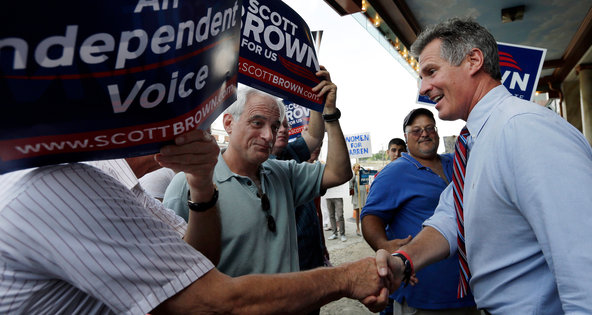Europe is pushing to cap bankers’ bonuses, but the bankers, once again, may be a step or two ahead of the rule makers.
Like a thunderclap, the European proposal to limit bonuses is reverberating across the global financial industry. Many bankers say, predictably, that such a step would be disastrous. Europe’s sharpest financial minds, the argument goes, will decamp to New York or Hong Kong at the very moment they are needed to help restart Europe’s economy.
Despite the outcry, which is particularly loud in London, the regulations that are being proposed may not turn out to be onerous at all. Bankers are already talking about ways to get around them. And, in any case, big banks have already been retooling pay practices and trying to keep a lid on compensation. Why? To bolster their profits and share prices.
As is often the case with financial regulation that follows a crisis, the risk is that the new rules, while sensible on paper, will be too late. What is more, they could have some adverse, unintended consequences.
The proposal, reached early Thursday under an agreement by European Union lawmakers and government officials, could mean that, starting next year, the coveted bonuses that many bankers across the 27 countries in the bloc receive will be capped at the level of their annual salaries.
Financial firms would be able to hand out payments that amount to double the salaries with the approval of a majority of shareholders. If bonuses exceed salaries, then a quarter of that additional payout must be deferred for at least five years. European officials say that the proposal is not yet final.
The rule’s rationale is to limit the high-reward, high-risk behavior by bankers that contributed to the global financial crisis. And given the high level of government support that banks receive, the argument goes, a bigger say in corporate governance could help prevent another disaster.
European bankers say the rules will prompt top talent to flee to less restrictive regions. Others indicate they will simply find some ways around the rules.
For example, some analysts say lower bonuses will be offset by higher fixed salaries, which could end up placing even heavier financial burdens on banks and their shareholders than bonuses do, because bonuses are easier to adjust from year to year.
Experts also point out that with higher fixed salaries, it will be harder to claw back bonuses from employees whose trades go bad or who violate laws or regulations. That is because most bonuses now are deferred, and are often paid in the form of stock, so they can easily be retracted.
Big banks, like JPMorgan Chase, Royal Bank of Scotland and Barclays, have used clawbacks in this way. And bankers say that this threat has itself become a powerful deterrent to risky or unethical behavior.
But the restrictions may only further solidify the changing world of banker pay, rather than shake up compensation practices.
Big financial firms once had a lot of leeway over how much they paid their employees, but — on paper, at least — that changed considerably after the financial crisis of 2008. With the industry reeling, the Group of 20 countries set up a framework for regulating pay.
One of the top principles was the tying of bankers’ pay to the amount of risk they took when doing trades. Bankers are typically rewarded compensation for one year’s performance, but they receive the cash or the shares that make up that reward over several years.
In theory, that gives banks the ability to cancel that pay if trades do not meet preset targets. This approach does not necessarily focus on the overall level of pay, however.
Raising base salaries could run straight into the framework that linked pay to the financial performance of trades. By promising to pay an employee a large sum upfront, the bank would essentially loosen the link between compensation and risk.
Connecting the two is the main principle at the heart of regulators’ new approach. If traders make a bad bet, it would be harder for bosses to punish them through their paycheck.
Michael J. de la Merced and Peter Eavis contributed reporting from New York.
Article source: http://www.nytimes.com/2013/03/01/business/global/prospect-of-bonus-caps-rattles-uk-bankers.html?partner=rss&emc=rss
